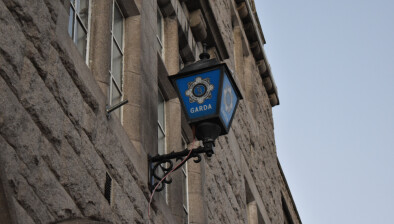Supreme Court: Garda entitled to return of his phone following DPP decision not to prosecute

The Supreme Court has determined that the Garda Commissioner could not rely on s.9 of the Criminal Law Act 1976 to retain a garda’s phone for the purposes of a Garda disciplinary investigation.

About this case:
- Citation:[2025] IESC 43
- Judgment:
- Court:Supreme Court
- Judge:Mr Justice Brian Murray
Delivering judgment for the majority of the Supreme Court, Mr Justice Brian Murray concluded that s.9 of the 1976 Act did not prevent the Garda Commissioner from acting on knowledge lawfully obtained by him or his agents from their perusal of the applicant’s phone, irrespective of whether the information was itself potentially relevant to a criminal investigation, but did not afford to the Commissioner any power to retain the phone for the purposes of a Garda disciplinary investigation.
Background
The applicant garda was a member of a WhatsApp group with other gardaí. In April 2019, the applicant received a video clip which he claimed to have forwarded to other members of the group without viewing it.
The group administrator subsequently advised all members to wipe the group from their phones due to a post made into the group earlier that day.
The applicant said that after reading that message, he realised that the post referred to was that which he had forwarded and having then viewed same, he saw what appeared to be a fully clothed male teenager and another person in a position suggestive of sexual interaction.
The applicant’s person, place of work, car and family home were later searched pursuant to warrants obtained under s. 7 of the Child Trafficking and Pornography Act 1998. Electronics including the applicant’s mobile phone were seized.
The applicant denied having knowingly accessed or distributed child pornography and on 5 May 2020, the DPP determined that there should be no criminal prosecution arising from the events. In the meantime, the applicant had been made the subject of an disciplinary investigation in September 2019 in relation to the distribution of images including what appeared to be two minors engaged in sexual activity.
On 17 July 2020, was advised that he was the subject of a further investigation concerning his failure to adhere to proper protocols relating to the storage of controlled substances, namely methadone which was found in his station locker, and the possession of images appearing to be racist, misogynistic, homophobic and supporting of Nazi ideology and “rape culture”, and of CCTV images relating to Garda investigations and practices, including images of suspects, PULSE and Garda members.
On 8 March 2021, the applicant obtained leave by way of judicial review seeking declarations including that as the criminal investigation into the video clip had concluded, the respondent could not retain his mobile phone, and that the respondent was not entitled to use the fruits of the search of his mobile phone as part of a separate disciplinary inquiry.
The applicant further sought orders prohibiting the use of the any material obtained from his phone other than in the course of a criminal investigation and prosecution and preventing disciplinary proceedings being brought in relation to either set of alleged breaches of the Garda Síochána (Discipline) Regulations 2007 (S.I. 214/2007), and sought orders mandating the return of his phone.
The High Court and Court of Appeal
The High Court proposed to make declarations to the effect that the Commissioner was entitled to use the material found in any disciplinary investigation, but was not entitled to retain property seized during a search conducted as part of a criminal investigation after its conclusion on grounds that such material would be relevant to an ongoing disciplinary investigation, and that a person is entitled to the return of their property once criminal proceedings have concluded subject to being able to establish ownership or a right to possession of the material.
On appeal, the Court of Appeal held that the material, being the material with which the second disciplinary investigation was concerned and which was not, in itself, capable of being evidence of the commission of a criminal offence, which incidentally came into the possession of the respondent by reason of the search pursuant to warrants issued under s.7 of the 1998 Act could not be retained and used in Garda disciplinary proceedings.
The respondent was subsequently granted leave to appeal that decision to the Supreme Court.
The Supreme Court
Having heard the evidence and the submissions of the parties, Mr Justice Murray considered that s.9 of the Criminal Law Act 1976, which refers generally to the use to which things seized under any power may be applied and the purposes for which they may be retained, did not authorise the respondent to retain the applicant’s phone for the purposes of Garda disciplinary proceedings.
Accordingly, once it was determined that there would be no criminal prosecution arising from the phone’s contents, and where the phone was the applicant’s property, he was entitled to its return upon his demand.
In this regard, Mr Justice Murray noted that the effect of s.9 was to provide the respondent with a defence to a claim by the applicant in trespass or detinue, which defence did not extend to retention for the purpose of disciplinary proceedings.
The judge was also satisfied that the applicant was not entitled to the return of photographs or material on the phone which were unlawfully in his possession, and the respondent was entitled to delete any such material before returning it to the applicant, although it was not established that there was any such material present, or if there was, that it would have been impossible to return the phone without deleting it.
The court further considered that the respondent was not entitled to make any copies of or to download material from the phone after the point at which it was determined that there would be no criminal prosecution and when a demand for the return of the phone was made, and was not entitled to deploy those copies or downloads in a criminal investigation.
However, in respect of any copies made or material downloaded before that point, the respondent’s entitlement to deploy such material depended on issues such as the content of the material, when it was made, for what purpose it was made and the legal basis on which they were made.
Mr Justice Murray considered that as a consequence of the lawful execution of the warrants, the respondent became aware that the applicant’s phone contained certain information and that s.9 of the 1976 Act did not impose a restriction on the use of information lawfully obtained during the course of a search (as opposed to the use of “things” seized).
The judge further highlighted that the use of that information was controlled by the applicant’s “complex of” rights to privacy, rather than s.9 of the 1976 Act.
The court explained that the respondent, having formed a view that the applicant’s phone contained information disclosing a possible disciplinary offence, was under a legal duty to appoint an officer to investigate that alleged breach and the fact that “the information in question was obtained by the Commissioner in the course of the execution of a search warrant does not displace that duty and, accordingly, he is entitled to use the knowledge so obtained to initiate the inquiry”.
As to the applicant’s rights to privacy, Mr Justice Murray observed that those rights are not exhausted when a decision is lawfully made to allow the seizure and interrogation of his phone, and that those rights extend to the use of the information obtained in the course of the execution of the warrant.
The judge outlined that having regard to the evidence and to the statutory duties engaged, the use to which the information on the applicant’s phone was put by the respondent was “lawful and proportionate to the objective of enforcing Garda discipline”.
Conclusion
Accordingly, the majority of the Supreme Court indicated that it would allow the appeal in part.
Hyland v. The Commissioner of An Garda Síochána [2025] IESC 43









